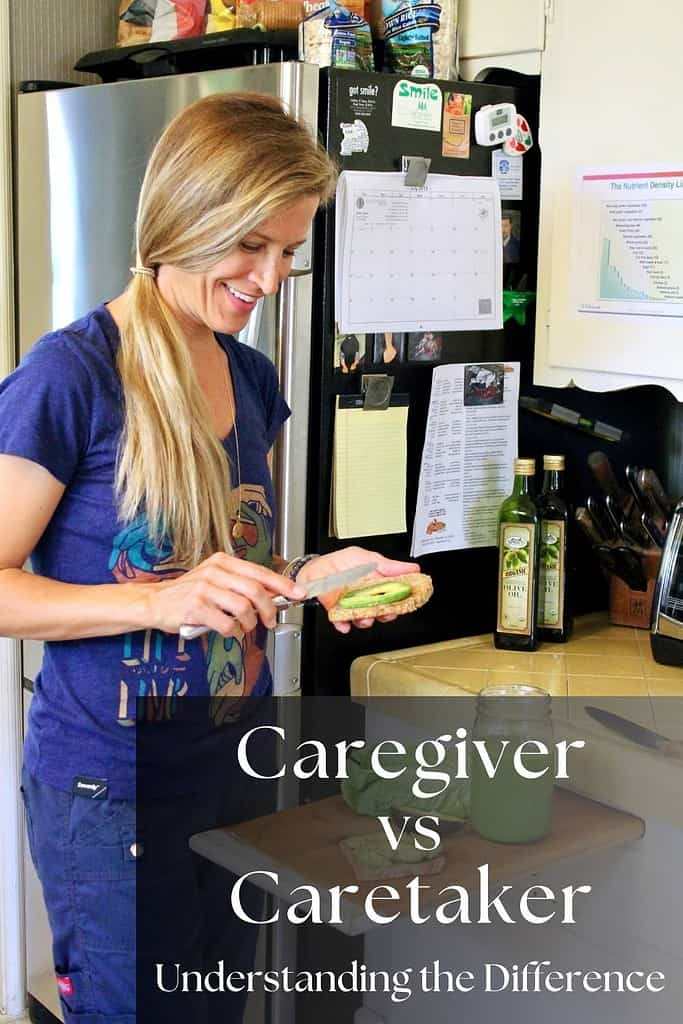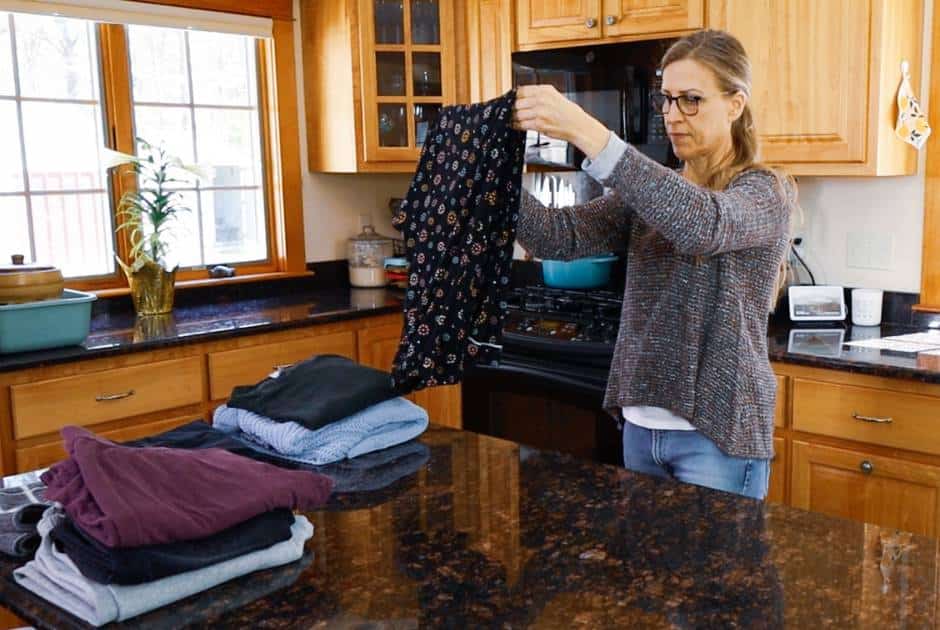Caregiver vs Caretaker: Understanding The Difference
Understand the subtle differences between the caregiver vs caretaker role and their distinct yet complementary contributions to healthcare.

Before becoming a caregiver for my guy who has Parkinson’s, I wasn’t aware of the distinction between caregiver vs caretaker, and to be honest, I didn’t think it mattered much.
Even during my time as a nurse in the hospital, I didn’t fully grasp the key differences between the definitions of caretaker vs caregiver. I mistakenly thought they were one and the same.
There are several different caregiver names that people use interchangeably. However, when it comes to hiring a caregiver or caretaker, then clarity on definitions becomes important.
In this article, we will explore the subtle distinctions between caregiver and caretaker, and we will look at their varied responsibilities and how these two roles complement each other when it comes to caring for those in need.
Caregiver Defined
Wikipedia, defines a caregiver as, “A paid or unpaid person who helps an individual with basic activities of daily living.”
These caregivers can be formal or informal and commonly assist with impairments related to being elderly, disabled, or having medical conditions such as a chronic illness, disease, or mental disorder. (1)
Responsibilities of a caregiver
The role of caregiver and their typical caregiver responsibilities include,
Types Of Caregivers
There are different types of caregivers but generally speaking, all fall into one of two caregiver categories.
Formal Caregiver (aka professional caregiver)
The main difference between a formal and informal caregiver is that the formal caregiver has acquired formal training and education, and is most often compensated for their services.
Within this category, there are a variety of trained professional caregivers.
- Agency Caregivers – caregivers with formal training who work through an agency to find clients.
- Certified Nursing Assistants (CNAs) – CNAs are trained to perform medical-related tasks such as vital signs, dressing changes, etc. They can also work under the supervision of a Registered Nurse or Nurse Practitioner.
- Home Health Aides – a home health aide is a trained and certified caregiver who can assist with personal care and household duties.
- Hospice and Palliative Caregivers – caregivers who are trained specifically to provide support and comfort to clients, and their families, toward the end of life.
- Private/Independent Caregivers – an independent caregiver usually has more experience and is highly trained, hired by families to provide quality in-home care in private homes.

Informal Caregiver
Informal caregivers do not usually have the training to provide medical-related care but can provide companionship and light housekeeping.
Sometimes individuals hiring informal caregivers will provide compensation, although the arrangement is typically less formally structured.
- Family Caregiver – offering all-around support and daily assistance as needed.
- Volunteer Caregiver – this type of caregiver is most often used as a respite for an informal caregiver.
- Non-Medical Caregiver – sometimes referred to as Personal Care Assistant or Attendant. These caregivers help with activities of daily living and take care of the house (ex. housework, shopping, etc.) as well as any specific needs of the individual they are caring for.
- Friend/Neighbor/Church Caregiver – friends, family, and community who may set up a schedule to voluntarily help the care recipient with general needs and daily activities.
Caretaker Defined
The Merriam-Webster definition of caretaker, as a noun, is three-fold (2).
- : one that gives physical or emotional care and support
- : one that takes care of the house or land of an owner who may be absent; the upkeep of a property
- : one temporarily fulfilling the function of office
While the caretaker definition is broader than that of a caregiver, both are frequently used interchangeably, particularly in the United States.
Responsibilities Of A Caretaker
When we look at a caretaker in terms of taking care of a person in their own home, their responsibilities line up similarly to that of an informal caregiver.
Some of a caretaker’s duties and responsibilities include,
Like the informal caregiver, caretakers are not qualified to provide medical care, such as administering medications and injections.
However, sometimes a caretaker, or informal caregiver, has professional training and has been taught to do these types of activities by healthcare professionals such as a nurse, nurse practitioner, or physician. In this case, it would be okay to do so.
Caregiver vs Caretaker: Overlapping Responsibilities
The responsibilities of a caregiver vs caretaker may overlap in certain situations, as both roles involve providing care and support for individuals in need.
Some of the overlapping responsibilities include,
It is important to note that while there are overlapping responsibilities, the emphasis and focus on certain aspects may vary between caregivers and caretakers.
A good caregiver often places a stronger emphasis on emotional and relational aspects of care, while professional caretakers may prioritize practical and physical tasks.
Clear communication and collaboration between individuals in these roles are essential to ensure well-rounded and comprehensive care for the care receiver.

Caregiver vs Caretaker: A Place For Both
Caregivers play an important role in healthcare. They provide compassionate support and personalized attention to those in need.
Caretakers are also important, as they manage the practical aspects of a client’s daily life, helping to ensure a safe environment.
Both roles can complement each other and form a powerful partnership, where emotional support intertwines with practical assistance, creating a more complete and holistic caregiving approach.
Recognizing and embracing the harmony between these two roles ensures a comprehensive and well-rounded care experience for individuals in need.
When Support Is Needed
If and when the time comes to seek assistance for a loved one at home, I hope you now have a clearer understanding of the diverse responsibilities the caregiver vs caretaker roles encompass.
Both are important and offer substantial assistance for both you and your care recipient. And both contribute significantly to the field of healthcare and support.
FREE GUIDE
If you would like more caregiver support, check out this FREE resource guide.
Check Out These Additional Posts For Continued Caregiver Support
Let’s Connect
If you enjoyed this article, I would love for you to share it with friends and family members, or anyone you think might benefit from reading it.
Please let me know your thoughts in the comment section below. I’d love to hear from you.
Reference
- https://en.wikipedia.org/wiki/Caregiver
- https://www.merriam-webster.com/dictionary/caretaker



